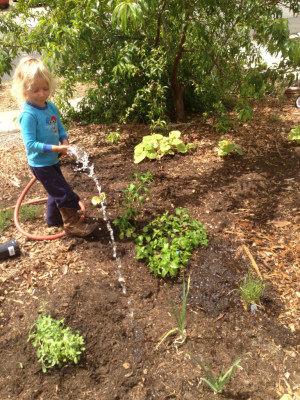Hopefully, you’ve had a chance to restore and integrate the pieces from Part 1 that resonate for you.  Remember that the journey of motherhood, and working from home is an ongoing and ever-changing one. No matter what the day before looked like, you can begin each new day connected to your soul, tuning in to your guidance, asking: what is loving today? what is realistic? how can I lovingly navigate today’s needs, while prioritizing my and my family’s health?
Remember that the journey of motherhood, and working from home is an ongoing and ever-changing one. No matter what the day before looked like, you can begin each new day connected to your soul, tuning in to your guidance, asking: what is loving today? what is realistic? how can I lovingly navigate today’s needs, while prioritizing my and my family’s health?
Here are some more ideas that have helped me and other mothers:
- Foster imaginative play. Have a box of toys or art supplies that only comes out when you are on the computer/need focus time, with items they really love. You can also have an imaginative play area that they only access when you are working. Many people rely on media to distract children, however, media also brings with it other challenges like drama around unhooking from it, limited imagination for children to access overall, children getting bored with it and needing more. Bottom line, engaging with media is not as nourishing for the child as imaginative play. But more importantly, it just tends to backfire, in my experience. My children who have had media limits, know how to drop into music playing, imaginative play, physical activity, dance, art, etc. and are often occupied by their own creativity for hours. I often have client calls with my little one playing like a whirling dervish nearby. He knows that he can be near me, but I need him to be quiet. (This is an understanding that happens easiest at age 5 and up.) In my opinion, media use is most effective, when you save it for when you really need uninterrupted time and use the regular time to cultivate a child’s natural work of imaginative play that will not need to be supervised/regulated in the way that media does.
- Strengthen your leadership. One of the main reasons that holding a daily rhythm can be a challenge is lack of experience or self-discipline with leadership. I like to use the concept of leading like the captain of a ship (learned from Susan Stiffelman). The captain sets the tone and provides the leadership and guidance to make sure all is flowing well, without being harsh or rigid. (Maybe it’s all those years of Love Boat (dating myself) but I generally imagine a captain as jovial.) I myself am a very flowy parent but my children do see me as the leader/guide in the day because I intentionally hold that role. We have to discipline ourselves to stay focused on holding the daily rhythm. Which means even if I am on a roll with work, I get up and make a meal when it’s mealtime (even though it can be hard sometimes!) There may be wiggle room, but it is really about us maintaining presence as a loving adult that cares and is consistent, that reassures our children and invites cooperation.
- Have a quiet time. After lunch/afternoon time is a natural time when the body needs rest. For all children, this is a time when we can call our active children in to slowing down, which helps them to be regulated later. All our neurons fire better with calm rest. It is all about establishing this as part of the daily rhythm: “After lunch, we have free play, then quiet time.” With a younger child, nap time may already be established. With an older child, you can ask them to read or draw quietly and rest in their rooms. This pause helps to bring that ‘in breath’ into the day that we all need for self regulation. It also helps to give siblings space and bring excitement about the free time they will have afterward.
- Allow boredom. Living in such an entertainment oriented society, children will invariably say they are bored and expect you to do something about it. We generally just validate the feeling, “oh, you’re bored right now” then lovingly detach and trust that they will move onto the next thing. Creatives know that letting oneself rest in the state of boredom, often allows us to decompress enough to lead us into the next creative idea. It is an essential state to embrace and move through at one’s pace.
- Prepare to give siblings space. Sometimes children will love playing with each other and sometimes they will show you with their behavior or conflicts that they need space. You may need to have the younger child play near you, or ask olders to play in designated areas. Think ahead for what might work when they need this. This is not time out or a punishment. It is a model for self-care and regulation. We simply say, “Sounds like you need space (or a break)” and we designate where they can play on their own to get space from each other, validating that this is a normal and healthy need.
Every situation is different. Children’s ages play a huge role in how manageable working from home can be. If children are very young and thus can’t regulate their behavior well, adult supervision is needed at all times. Right now, some parents are tasked with overseeing school in addition to trying to work from home increasing the stress greatly (more on that later). Some of the suggestions here may be helpful and some might not work. There are no pat answers because our circumstances, our own temperaments and needs are all diverse.
Above all, remember that your children chose you and by connecting with your intuition, spiritual guidance, and the grandmothers that came before, you will find the path that is most nourishing for you and your children. Trust your heart. The deep love we have for our children is the source of our greatest wisdom.
